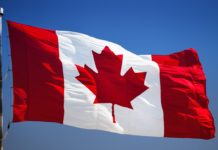On September 4, 2015, the U.S. government issued a categorical rejection of Rwanda’s scheme to allow President Paul Kagame to seek a third term in 2017. In the American government’s own strong words, “We do not support those in positions of power changing constitutions solely for their political self-interest.” In the same statement, the U.S. government reminded President Kagame that he “has repeatedly stated his commitment to respecting constitutional term limits…The United States underscores the importance of these commitments.”
This American stance is all the more important coming from a friend of Rwanda – not just a friend of President of Kagame. Let us look at the facts. American taxpayers’ money – Rwanda’s biggest foreign aid – amounts to over $200 million a year. Take the fiscal year of 2013 for example. According to the Congressional Budget Justification, the following types and amounts of assistance were given:
- Total Assistance to Rwanda – $203,583,000.00 of which….
- Development Assistance – $61,912,000.00
- Global Health Program (State Department) – $42,397,000.00
- Global Health Program (USAID) – $92,100,000.00
- Foreign Military Finance – $282,000.00
- PL–480 or Food for Peace – $$6,892,000.00
President Kagame will no doubt chest-thump and dismiss the U.S. as “outsiders who have no lessons to teach Rwanda.” But in reality, much of the success in Kagame’s Rwanda, has largely come from aid, including assistance from America which is Rwanda’s biggest bilateral donor. As shown from the above breakdown of American aid to Rwanda in 2013, the two Global Health Programs totalling $134 million went into the health sector. It is unlikely that Rwanda’s health-care system, which is said to cover 90% of its citizens, would exist without American money. The same can said of other sectors; they all depend on foreign aid.
Look at the support Rwanda receives from another angle. Domestic revenues from taxes in Rwanda during 2014/2015 amounted to RWF871 billion or $1.1billion, according to the just-released data by Rwanda Revenue Authority (RRA). Rwanda receives nearly the same amount of foreign aid annually. In 2013, foreign aid to Rwanda was $1billion.
We are not arguing here that because the U.S. gives financial support to Rwanda, it should lecture on how the recipient ought to behave. Rather, as a friend of Rwandans, and of Kagame in particular, America has a right to remind the Rwandan head of state what he himself has repeatedly stated – that he respects the Constitution. Further, the U.S. stood by when in the past there were clear and dangerous signs of pending violence and disaster back in 1994. Proactivism this time around is timely and welcomed.
Once again, we welcome the U.S.’s stance on the current maneuvers by the Rwanda government to allow President Kagame to cling to power. We encourage other countries to come forward and tell Kagame that under no circumstances will the world tolerate power grab in 2017.
We are of course aware that stopping illegal seizure of power in Rwanda is the responsibility of the Rwandan people.
This task is, however, hindered by Kagame government’s repression that has stamped out voices that do not toe his line via imprisonment, intimidation, exiling, disappearances, and even mysterious deaths. It is this reality that makes the American statement all the more crucial. A friend in need is a friend indeed.
 David Himbara is Chairperson of the North America’s chapter of Democracy In Rwanda Now (DIRN).
David Himbara is Chairperson of the North America’s chapter of Democracy In Rwanda Now (DIRN).































































